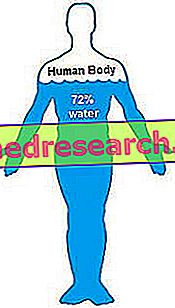By Dr. Roberto Zisa
This body fat reduction program is the most effective way to get a better shape for your health.
The program allows you to gradually eliminate body fat and increase lean mass.

Regardless of your goals or any competitive aspirations, this eight-week program will lead you to have a body with less fat and more defined muscles.
* The first step in reducing the grassroots body is to reduce sugars and saturated fats, replacing them with whole foods. Prefer fruit, vegetables, lean meats, low-fat dairy products, eggs, peanuts and seeds. Hiring slower absorption carbohydrates, such as sweet potatoes, oatmeal and brown rice.
Consequently, you must follow a diet that includes only this type of food.
In this phase, gradually eliminate processed foods and especially those that contain white flour, refined sugar and hydrogenated fats.
In addition to whole foods, the food program includes protein shakes. Those with low carbohydrates are ideal for small meals or snacks, while those with a higher carbohydrate ratio are more suitable as pre- and post-workout meals. Use protein supplements to provide the body with all the nutrients it needs to maintain muscles.
* The second step is to change the proportions between macronutrients. Gradually change the diet so that the caloric root comes only 40% from carbohydrates; to do so by continuing to meet the caloric needs, it is necessary to reduce the total carbohydrate intake and considerably increase the daily protein intake. I personally recommend taking 2.2 grams of protein per kg of body weight per day. However, by decreasing the consumption of carbohydrates, protein intake should increase between 2.5 and 3.3 grams per kg of body weight. > The protein intake is determined by the decrease in carbohydrates in the diet and by the initial lean mass. The greater the rigidity of the diet and the quality of body fat you wish to lose, the greater the protein intake needed to compensate for the significant reduction in carbohydrates.
The consumption of saturated fats must also be kept to a minimum. Reduce the number of egg yolks and prefer egg whites, cuts of lean meat, such as chicken or turkey breast, and lean red meats. At the same time, increase the consumption of healthy fats such as fish oils, extra virgin olive oil, and flaxseed oil. Use peanut butter because it is particularly energetic and suitable for satisfying caloric needs.
A tip not to be underestimated, the change in the ratio of macronutrients must occur by decreasing carbohydrates and increasing proteins in a slow and gradual manner, because changing proportions very quickly can prove to be a great mistake, which risks causing a decrease in muscle mass, strength and resistance, not to mention the feeling of deprivation and lethargy. Although they are very effective, low carbohydrate diets can be difficult to meet, especially at the beginning.
* The next move is to include 40/50 minutes of aerobic training per day in your program. If you are not used to aerobic work, proceed step by step. The first week, run 20/30 minute sessions of moderate intensity aerobics, such as a moderate pace uphill walk. Every week you perform an extra day of aerobics by increasing the duration of five minutes per session until you get to perform five or six sessions of 40/50 minutes a week. Keep the intensity constant at a moderate level since a more intense workout tends to favor the consumption of muscle mass rather than body fat.
Increase fiber intake. The considerable increase in protein intake also requires an increase in soluble and insoluble fiber; I recommend using fiber supplements and consuming more fruits and vegetables. It may take some time for the intestine to adapt to this food change. I advise you to gradually increase your fiber intake so that the body gets used to "digesting" it. Start with a daily dose of 3 g at a solid food meal, increasing one more portion every six days, until you have four meals per day supplemented. Taking fiber immediately after a meal of solid foods will slow down absorption and improve the use of nutrients.
It is very important to drink a lot of water (4-5 liters per day) because the heat, the training and the production of ketones caused by the diet can promote dehydration.
second part "



